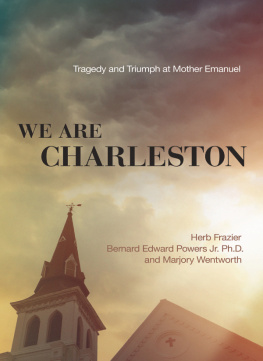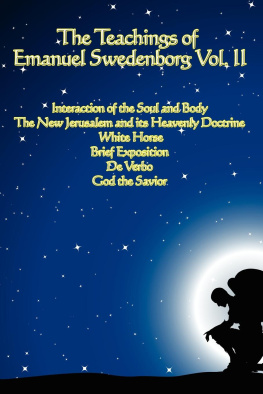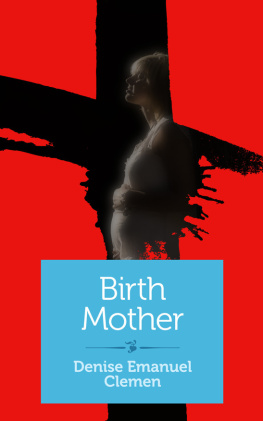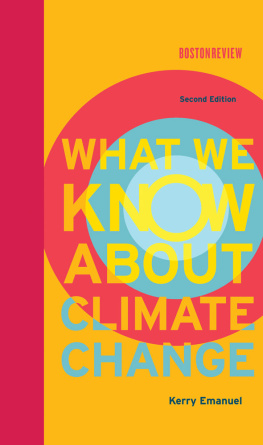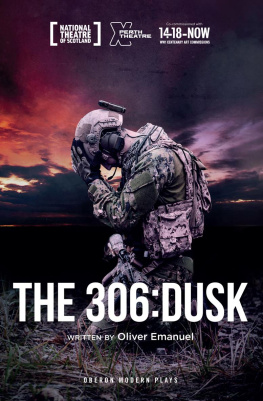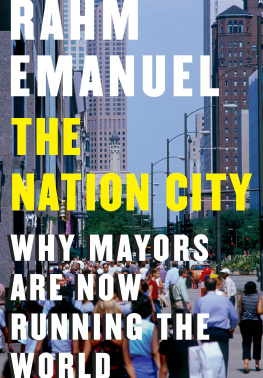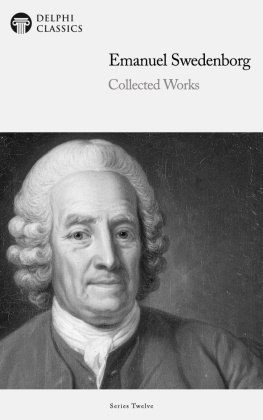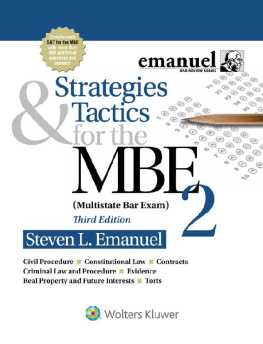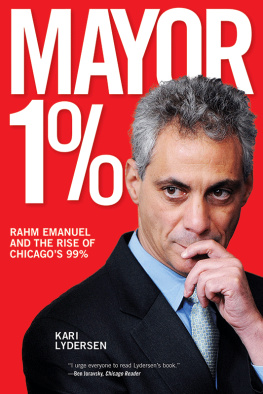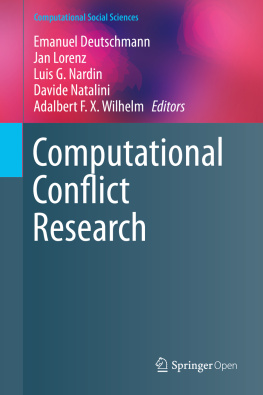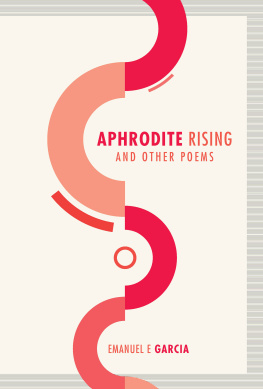
PRAISE FOR WE ARE CHARLESTON
Emotional, careful, and rich, We Are Charleston makes sense of the senseless, the Charleston, South Carolina, massacre of June 2015. From one abominable event the book shapes a testament, an investigation, and a history. We Are Charleston sets the crime within the flow of race, church life, and Southern history and offers moving portraits of the victims. It does the near impossible, which is to redeem tragedy on behalf of hope.
Edward Ball, author, Slaves in the Family
This is a beautifully woven story, rich in history and narrative detail, that describes how the Mother Emanuel AME Church turned hate into forgiveness, and an act of brutality into a lesson that has inspired the nation and the world.
Erik Calonius, former Wall Street Journal writer and author, The Wanderer: The Last American Slave Ship and the Conspiracy That Set Its Sails
The authors intensely probe the sanctified character of African Methodism and reveal how the members of Mother Emanuel in Charleston and other AME churches stress personal holiness that undergirds forgiveness and social holiness that mandates militant opposition to the social sin of racism. These attributes, deeply embedded in African American religion, have shown the nation and the world a sure route to healing and reconciliation.
Dennis C. Dickerson, retired AME Church historiographer; and James M. Lawson, Jr. Professor of History, Vanderbilt University
In We Are Charleston a sharp investigative reporter, a distinguished historian, and a gifted poet have blended their skills, their knowledge, and their humanity in order to craft a probing account of and an insightful meditation on what happened to nine people who got caught being black and trying to be Christian on a warm night in Charleston. This unsentimental yet sensitive book will become a very important part of the way that we remember and honor those nine unique individuals. It will also become an indispensable part of the way that we try to understand the spiritual, racial, social, and political meanings of a tragic moment in a long history that we all share.
Reginald F. Hildebrand, associate professor, African American Studies & History, University of North Carolina at Chapel Hill
We Are Charleston
2016 Herb Frazier, Dr. Bernard Edward Powers Jr., and Marjory Wentworth
All rights reserved. No portion of this book may be reproduced, stored in a retrieval system, or transmitted in any form or by any meanselectronic, mechanical, photocopy, recording, scanning, or otherexcept for brief quotations in critical reviews or articles, without the prior written permission of the publisher.
Published in Nashville, Tennessee, by W Publishing Group, an imprint of Thomas Nelson.
Thomas Nelson titles may be purchased in bulk for educational, business, fund-raising, or sales promotional use. For information, please e-mail SpecialMarkets@ThomasNelson.com.
The personal stories told in this book are based on true events, and permission has been granted for the use of the real names of and correspondence from individuals interviewed for the writing of this book.
All historic newspapers quoted were transcribed by Dr. Bernard Edward Powers Jr., and, unless otherwise noted, were viewed on microfilm, the Christian Recorder, Essex Patriot, and New York Freeman at the College of Charleston Addlestone Library and the Charleston Courier (also sometimes known as the Charleston News and Courier and Post and Courier) at the downtown branch of the Charleston County Public Library and the College of Charleston Addlestone Library.
Scripture quotations marked NRSV are from the New Revised Standard Version Bible. 1989 National Council of the Churches of Christ in the United States of America. Used by permission. All rights reserved.
Scripture quotations marked KJV are from the King James Version. Public domain.
ISBN 978-0-7180-4149-6 (eBook)
Library of Congress Control Number: 2016930186
ISBN 978-0-7180-7731-0
16 17 18 19 20 RRD 6 5 4 3 2 1
In memory of Sharonda Coleman-Singleton, Cynthia Graham Hurd, Susie Jackson, Ethel Lance, DePayne Middleton-Doctor, Clementa Carlos Pinckney, Tywanza Sanders, Daniel L. Simmons Sr., and Myra Thompson. For Jennifer and Malana Pinckney, Felicia Sanders and her granddaughter, and Polly Sheppard.

Herb Frazier dedicates this book to his father, the late Benjamin Frazier. He also extends a special dedication to his mother, Albertha Nelson Frazier, and to the next generation: his grandchildren, Lauryn, Nicholas, Kinsley, and Connor Thomas; Nathaniel Hamilton; and Roman Lee Frazier.
Dr. Bernard Edward Powers Jr. dedicates this book to John Burkett, his maternal grandfather, who never attended school beyond the fourth grade but whose lifelong example of self-education inspired his grandsons love of reading.
Marjory Wentworth dedicates this book to the memory of her father, John Heath, whose love and knowledge of history and literature are still her greatest inspiration. Special thanks to her family: Peter, Mary, Hunter, Alice, Oliver, and Taylor.
CONTENTS
Forgiveness is nothing less than the way we heal the world.
BISHOP DESMOND TUTU AND MPHO
TUTU, THE BOOK OF FORGIVING
The flash of the assailants pistol on the evening of June 17, 2015, touched off a series of events that shook the foundation of Charlestons already beleaguered Mother Emanuel AME Church, reverberating back to its very beginnings. Comparatively few people knew anything about this congregation before the heartrending news stories emerged, but it is a church that through the years has experienced the trials of the biblical Job. More than once, the hands of man or the raw forces of nature have shaken the church to its core, threatening its very existence. Now, in the aftermath of more recent events, Mother Emanuel is faced once again with having to find a way to heal and rebuild, both literally and metaphorically.
Like the rest of the community and, indeed, the nation, we were deeply saddened and unnerved that such an unspeakable crime could be committed in the place we love and call our own. We were also captivated by the tremendous outpouring of sympathy emanating from around the world for our fair city by the sea. Everyone wanted to do something to relieve the pain, to somehow right the wrong or even assuage personal guilt for failing to challenge the racist forces still extant in America. None of us was a stranger to Mother Emanuel; to the contrary, we each had close friends or relatives in the church, and, in fact, Herb grew up in the congregation where his grandmother and father were members.
Although each of us was in the midst of other projects, what had occurred could not be ignored; we, too, desired to act by pooling our collective professional resources to explore the tragedy. Using the tools of the investigative reporter to find the central stories, the historians grasp of the past as context, and the poets ability to plumb the depths of the human condition, we began this new project together. We soon discovered that to be successful, it would take our combined abilities to achieve a task that not one of us could have accomplished alone. And its this unique combination of backgrounds and experiences united by our shared passion for our home that enables us to tell this story in one voice, speaking to and for many others. The title addresses who we are as writers while suggesting the universality of what happened in Charleston. What happened on June 17 was an assault on humanity, and what has happened since has implications that echo far beyond South Carolina.
Next page
